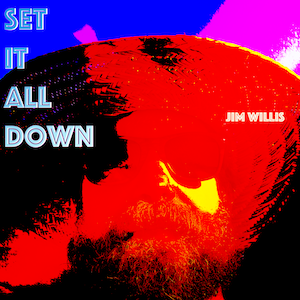The Razor’s Edge Somerset Maugham
Monday, February 03, 1997
Finished reading this one last night. At by the time I put it down, my opinion of the book had done a huge turn around—from thinking it was a weak, well thought but poorly executed book, to a book that really did have something to say. One reason perhaps for the turnaround is that I realized I was trying to get the wrong information out of the book. I thought the book was telling a different story than the one printed on the pages in front of me. I was second guessing the author, thinking that I knew what he was trying to do and I judged that he was doing a poor job at it. Though eventually, I just started reading it as a story and stopped trying to see through the writer and it occurred to me that if I just read what was in front of me and didn’t go too much deeper behind the words, it was an ok book.
I’ll propose a weak analogy here: it was a bit like star wars, which I saw this weekend. If you watch star wars and try to distill some life guiding principals from the Force, you’ll come away disappointed. On the other hand, if you just enjoy the story, the Force is an interesting, integral part of the movie and has its inspiring moments.
So is there anything wrong with a story that is just that: a story? I don’t think so. I mean, and even as stories go, this one had a lot more to offer than the regular time killing book. I mean it’s a success story done in a completely new way. It’s odd how its connection to the 20’s is pretty clear, but that connection is important in a way unlike the connection Gatsby has with that era. I think in a sense, Maugham uses the era in a way unlike Fitzgerald did and as such gives the reader a slightly different perspective of that era. I think that it would be wise for anyone teaching Gatsby to put this book up along with it for the benefit of the student.
The epigraph that starts the novel illustrates this difference:The sharp edge of the razor is difficult to pass over;thus the wise say the path to Salvation is hard.Katha-Upanishad
I think that at first I was looking for some sort of connection between Seymore and larry. And while certain similarities exist, there is a historical difference between the two that spans like 20 or thirty years. Maugham doesn’t purport to know anything about what larry is talking about. It’s a good cop out, granted, but it’s also pretty understandable. But even for someone that doesn’t appear to know all that much about what larry is going through, he does have some good insight into the path that larry has chosen. Particularly this piece of dialog that appears much later in the book (269):
“But that poor little drop of water, when it has once more become one with the sea, has surely lost its individuality.” (Maugham speaking)
“You want to taste sugar, you don’t want to become sugar. What is individuality but the expression of out egoism? Until the soul has shed the last trace of that it cannot become one with the Absolute.( larry).
So it appears that Maugham raises the same objection to The Way as yours truly, and he does a hell of a job both expressing it and a damn good job of expressing larry’s argument against that objection.
His ending is suitable:For all the persons with whom I have been concerned got what they wanted: Elliot social eminence; Isabelle and assured position backed by a substantial fortune in an active and cultured community; Gray a steady and lucrative job, with an office to go to from nine till six every day; Suzanne Rouvier security; Sophie death; Larry happiness.
I would only fault him for stating so categorically that larry has in fact achieved happiness, because Maugham does seem to skirt the issue of whether individuality is a requisite of happiness. But, once again though, he has only aspired to write a success story about these people and in this universe he is perhaps correct. But in the larger universe of life, I have to wonder whether or not he sort of cheated. I mean what good is a story if the truths it expresses are only valid in the universe created by the author? This is where salinger clearly has the upper hand. Maugham does a damn good job of getting to the point that everyone wants something different out of life and that these people, elliot and gray in particular, should be judged by the criteria they set for themselves. It seems that maugham, by taking this position, is saying that (since a universal criteria is so arbitrary) it is impossible to apply any sort of universal criteria of success to every person’s existence, and each person is required to define his or her own criteria. While I disagree with this argument, Maugham does a really good job expressing it.

